Table of Contents Show
Nobody wants to overpay for anything they buy, much less an expensive purchase like an RV. Many people don’t know how to negotiate the best RV price.
This could be due to several reasons, like a lack of available resources on the subject, being a first-time buyer, or even a little intimidation. With a bit of research, there is no reason that you can’t get a great deal on your next transaction!
Negotiating a great price requires a little time and effort, but it is well worth it when you save money at the closing table. The time you spend in negotiations could result in saving thousands of dollars when buying an RV. If you are looking to buy any time soon, here are important guidelines you must follow to negotiate the best price.
Where Can You Purchase An RV?
Don’t think you can only purchase an RV from a dealer. Although this is one option, it’s not always the best unless you’re searching primarily for a new RV. If you want to buy a used RV, check Facebook Marketplace, RV Trader, and local ads. Join a buy/sell/trade RV Facebook group where you can connect with others and even post a want-ad.
Another good idea when purchasing a new RV is to attend an RV show. These are the same makes and models you’ll find on dealer lots. But representatives from the manufacturers will be there to answer questions. You can also compare many similar floorplans on the same day to help you make the best decision.
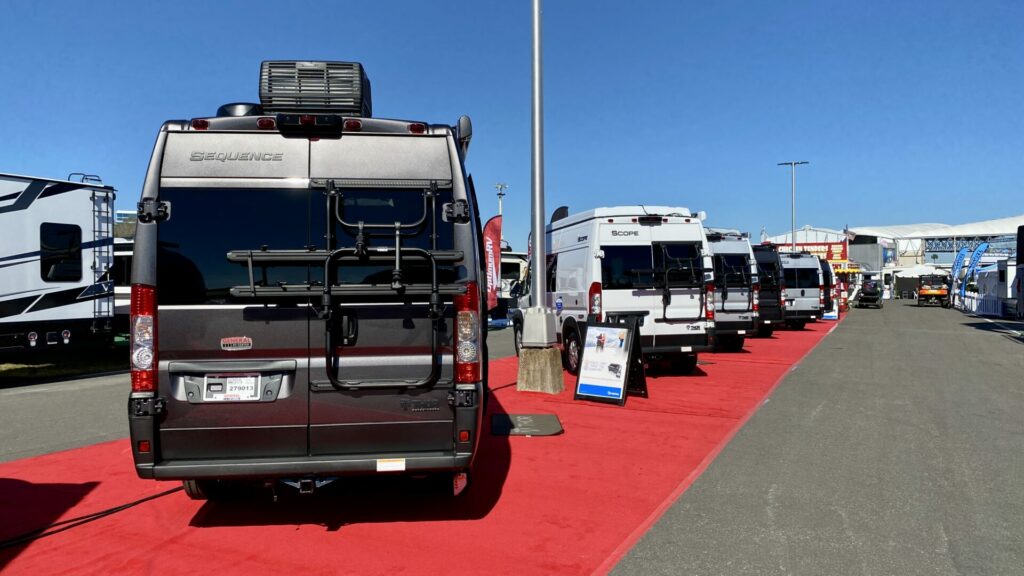
What Time of Year Is Best to Purchase An RV?
Purchasing an RV during the height of the camping season is the worst idea. If you wait, start looking in late fall after the camping season. Whether you want to buy new or used, owners and dealers often want to get rid of their RVs because they don’t want to winterize them.
Another good time of the year when you can get a better deal is during the winter at the end of the year. Dealers are looking to move inventory to accommodate the new model RVs.
Also, as dealers are trying to meet quarterly goals, March, June, September, and December are great months to buy an RV. You can negotiate better near these deadlines.
Learn More: If you’re looking for other times to buy your perfect rig, check out on article on the 5 Best Times to Buy an RV!
10 Tips For How To Negotiate RV Price For the Best Deal
When buying a new or used RV, there are a few things to remember. These tips for how to negotiate the best RV price might require more effort on your part but will save you thousands.
1. Do Your Homework
The first guideline is a crucial one. Do plenty of research before ever stepping foot onto the lot at the RV dealership. Once you have decided on the type of RV you plan to purchase, start looking online to get an idea of what they are selling for. Check out multiple RV dealerships in the area to see the listed price on the type of unit you like.
One thing to remember is that RV prices can vary significantly between different regions of the country. When researching, try to keep your search limited to no more than 300 miles from your area.
Going outside that range may give you a false sense of the market in your area. Unless you plan on driving a great distance to make your purchase, it’s hard to use prices outside your market as leverage at your local dealer.
In addition to finding the listed price for models in your area, some websites even allow you to research the actual sale price of similar models. This gives you an even better idea of what you can expect to pay when everything is said and done.
Pro Tip: If you need a place to start for RV prices, read How Much Does an RV Cost?

2. Know When To Shop
The RV industry is cyclical, and RV prices reflect that. Only a few people are camping in the winter, meaning people are not in the market to buy an RV then. There are certain times of the year when an RV dealership is more willing to negotiate than others, and winter time is one of them.
Another one of those times is late fall, when the camping season is winding down. Dealers may still have some current-year models on the lot and need to move them to make room for the new models coming in before the following season. A lot of times, you can get an excellent deal around the end of the camping season.
Like at the end of the camping season, many dealerships work on monthly, quarterly, and yearly goals. You may find that your dealer is more likely to sell at a lower price at the end of the month or quarter to meet the sales quota for that period.
Knowing the proper time to shop and taking advantage of the dealer’s situation can save you a lot of money and give you the edge when trying to negotiate the best RV price.
Pro Tip: If you’ve been holding out purchasing your RV, that’s great because It’s Official: The RV Bubble Has Burst.
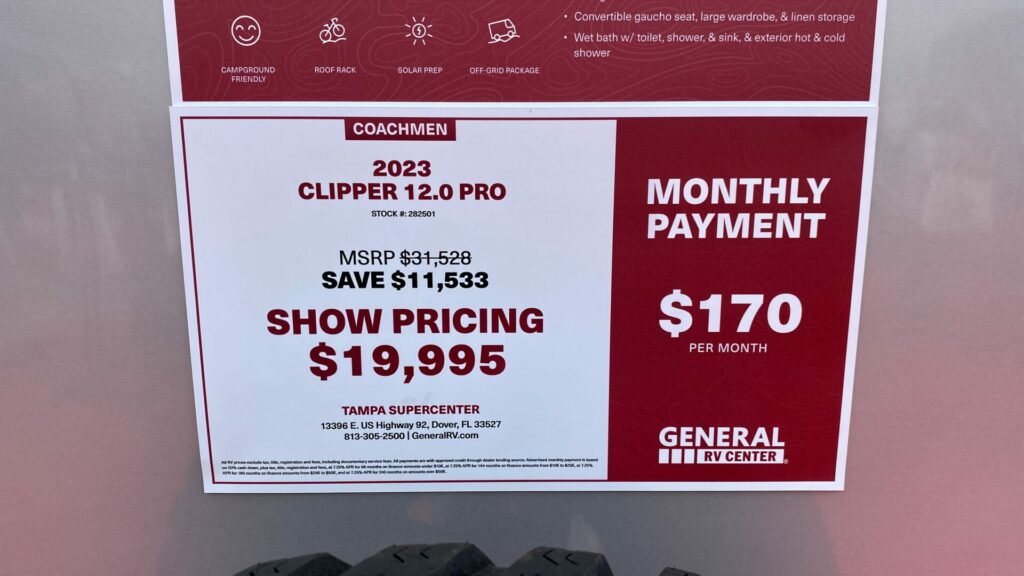
3. Visit A Local RV Show
An RV show is a great place to see many different manufacturers and models in one or two days. Additionally, you can easily compare price ranges between dealers because they are all together in one place.
At the end of the show, the dealers must pack up their unsold inventory and tow it all back to their lot. Many of them had rather sell the units at a lower price than go through the hassle of taking them back to the lot.
Walkthrough the show and check out the units that interest you. Talk to the salespeople about those units and determine which ones seem ready to make a great deal. Many of them are willing to do what it takes to make a deal on the spot and sell that rig. Use this to your advantage!
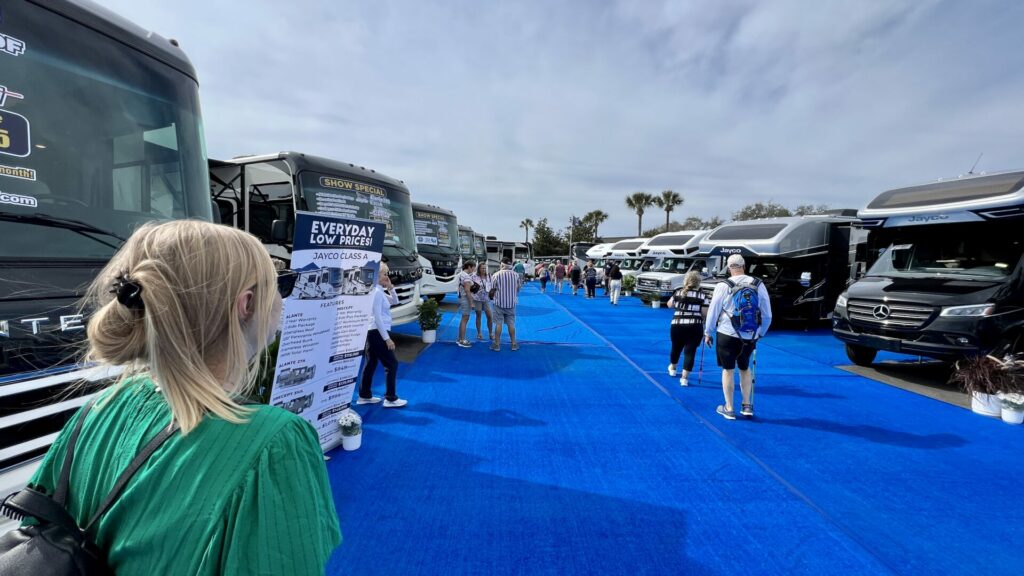
4. Secure Your Own Financing
If you come to the dealership with your own pre-approved RV financing, you generally have more leverage in negotiating the best RV price you can get. This shows the dealer that you are serious about buying, and that you are able to do so.
Once they realize you’re not just a tire-kicker, they can get serious about lowering the purchase price to convince you to buy.
While applying for financing at the dealership is convenient, they don’t always have your best interest in mind. It may take more effort, but you can still shop around for financing to get the best rate and terms.
When you walk in the door at the dealer pre-approved for your loan, they will take you seriously and work with you to make a deal on your RV purchase.
Learn More: Have you ever wondered Is Zero-Down RV Financing Possible? Click to find out!
5. Watch For Hidden Fees
Some dealers like to throw in additional fees like prep fees or doc fees that you did not realize were going to be a part of the price. Watch out for these, and always attempt to negotiate your way out of paying them. Ensure that the price you agreed to is reflected in the final paperwork.
It’s important to note that some extra fees are required by law. Sales tax, for example, must be added to the purchase price.
However, prep and doc fees or advertising fees are not required by law, and they are a way for the dealer to make some extra money on the sale. If they refuse to remove those fees, you must determine whether you’re willing to pay that extra few hundred dollars. The RV may still be a good deal. This leads directly to our next tip.
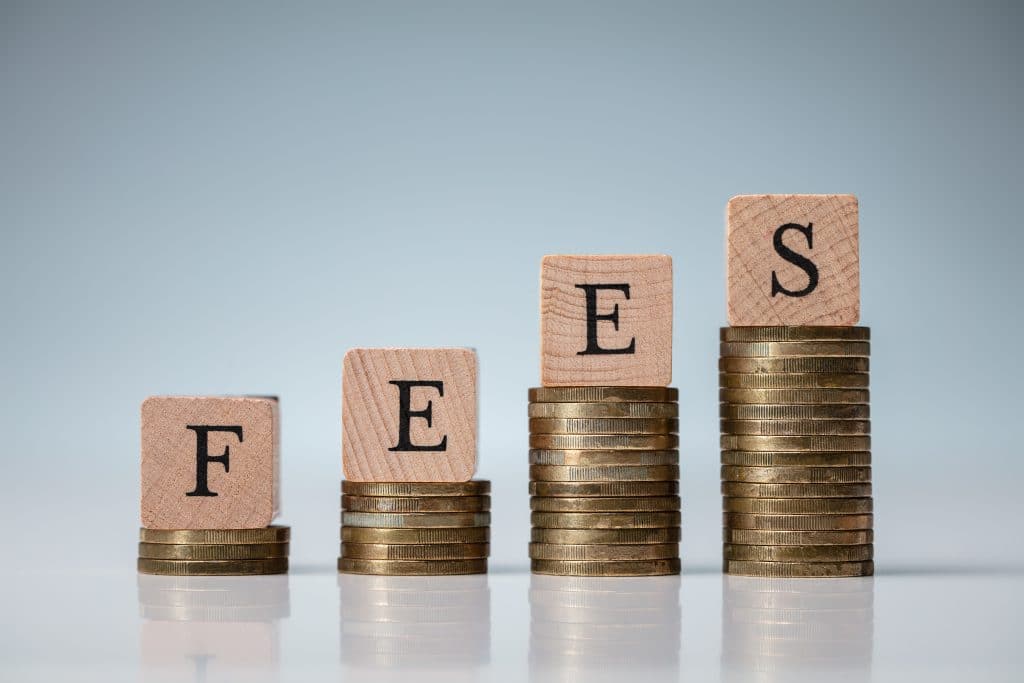
6. Don’t Be Afraid To Walk Away
This one is quite simple. Don’t be afraid to walk away if you aren’t able to negotiate the best RV price. If the sales manager refuses to remove specific fees or they can’t hit the price for your budget, then don’t be frightened to leave without buying.
Don’t feel pressured into completing the sale simply because they have shown you around the lot or even drawn up paperwork.
You are free to leave at any point in the process, and until you sign the contracts, you are under no obligation to purchase anything. Walking away can be a powerful negotiating tool in some cases.
For instance, if the dealer refuses to remove the $500 prep fee and you walk away, they will often call you back the next day and agree to remove it. Remember that you can always find a recreational vehicle for sale in many places and don’t have to take just any deal. Wait until you get the deal that you’ve been looking for!
7. Get An RV Inspection
Don’t rely on the dealer to provide the only inspection. An independent RV inspector doesn’t get any more or less money based on the outcome of his report, whereas a dealer may or may not lose out on a sale.
An RV inspector may discover things that you overlooked. He’ll also point out issues you may have later. Potential problems or existing problems can help you negotiate a lower price. If the dealer doesn’t budge on the sale price, the dealership may agree to fix the problems before purchase. This will save you money in the long run.
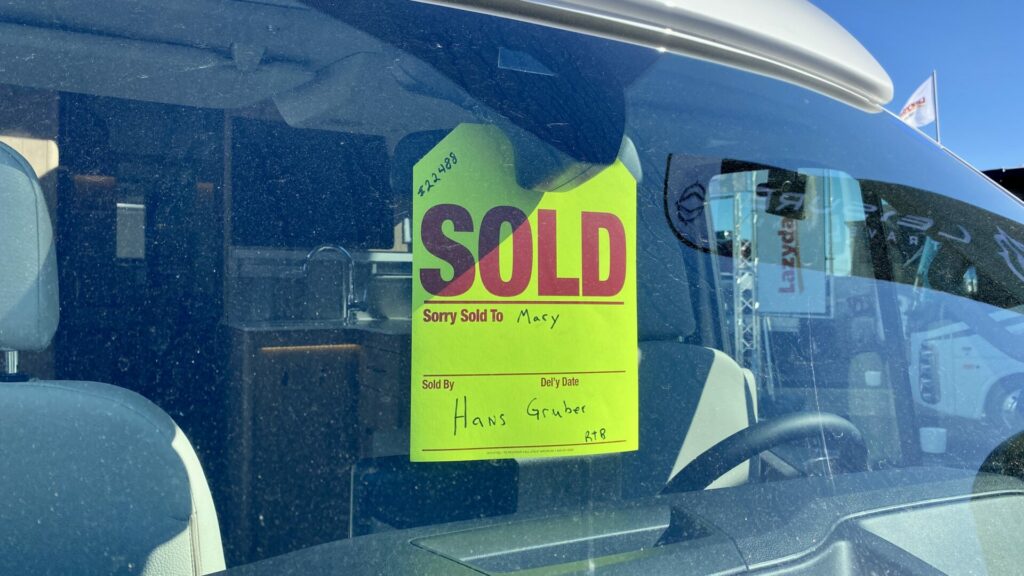
8. Buy Used If You Can
RVs depreciate very quickly. Within the first year, an RV will lose thousands of dollars. So if you can buy a used RV, you’ll immediately save money because the rig has depreciated. The new-to-you RV will still lose value but not as quickly.
Even when buying used, you want to know how to negotiate RV prices. Knowing when to shop, like at the end of the fall camping season when owners don’t want to winterize their RVs, and hiring an RV inspector are still valuable tactics when buying used.
You can still find high-quality RVs that have barely been used. Often people thought they’d use their RV more than they did. It might have sat in their driveway more than they expected, and are just looking to get what they owe on it. So if you can buy used, you’ll save thousands upfront.
9. Ask For A Package Deal
When buying used or new, you can always ask for add-on items to be included. Consider the essentials like a surge protector, sewer hose, and leveling blocks.
If you’re buying used, often, the owner won’t need those items anymore. If you’re buying new, the dealer usually has immediate access to these items in the store. A couple of hundred dollars for some camping essentials may just be worth it to close a deal on their end.
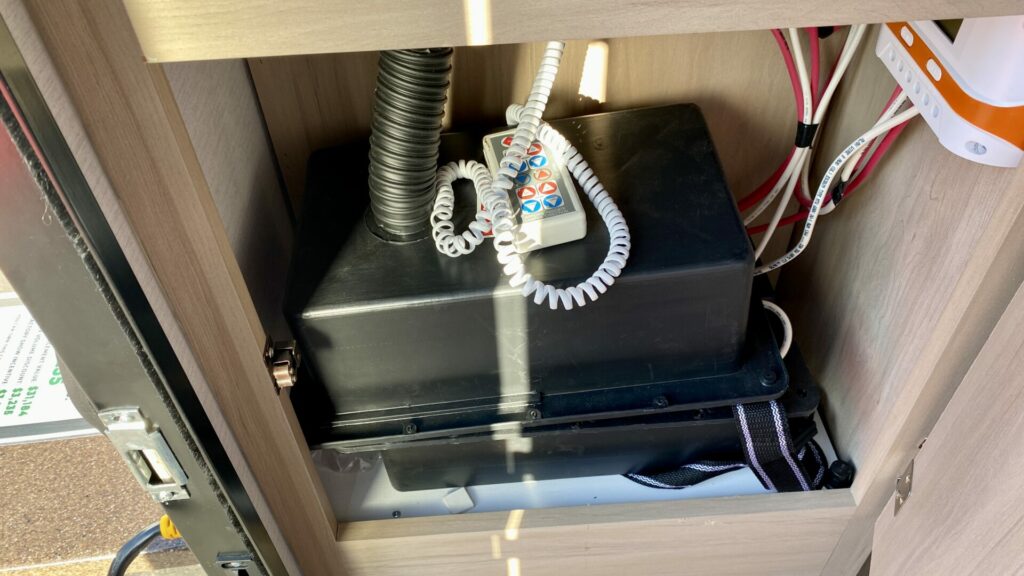
10. Get Quotes For RVs From Multiple Places
Part of doing your homework is getting multiple quotes for the rig you are interested in. You want to be able to tell a dealer that another dealer is offering a better price.
If you’ve found the same rig just 200 miles away that’s cheaper, let them know. Show that you’ve done your homework, and you’re only buying if they’re giving you the best deal on the financing end and sticker price.
What Are Things You Don’t Ever Tell An RV Salesman?
If you’d like to learn more about how to negotiate RV prices, The RV Dummy and Travel Channel has a great YouTube video about things you shouldn’t ever tell a salesman.
They include things like “I really love this RV,” “I don’t know anything about RVs,” or “I’m trading in my RV.” Keep a poker face, and don’t show all of your cards up front. You’ll get the best deal when you know what to say and what not to say when negotiating an RV price.
You Can Save Thousands If You Know How To Negotiate RV Price
RVs aren’t cheap. Even used RVs will cost thousands, tens of thousands, or hundreds of thousands of dollars. The more money you can save by knowing how to negotiate RV price, the more you can spend reserving campsites and making memories.
What’s your best tactic to get the very best RV price?





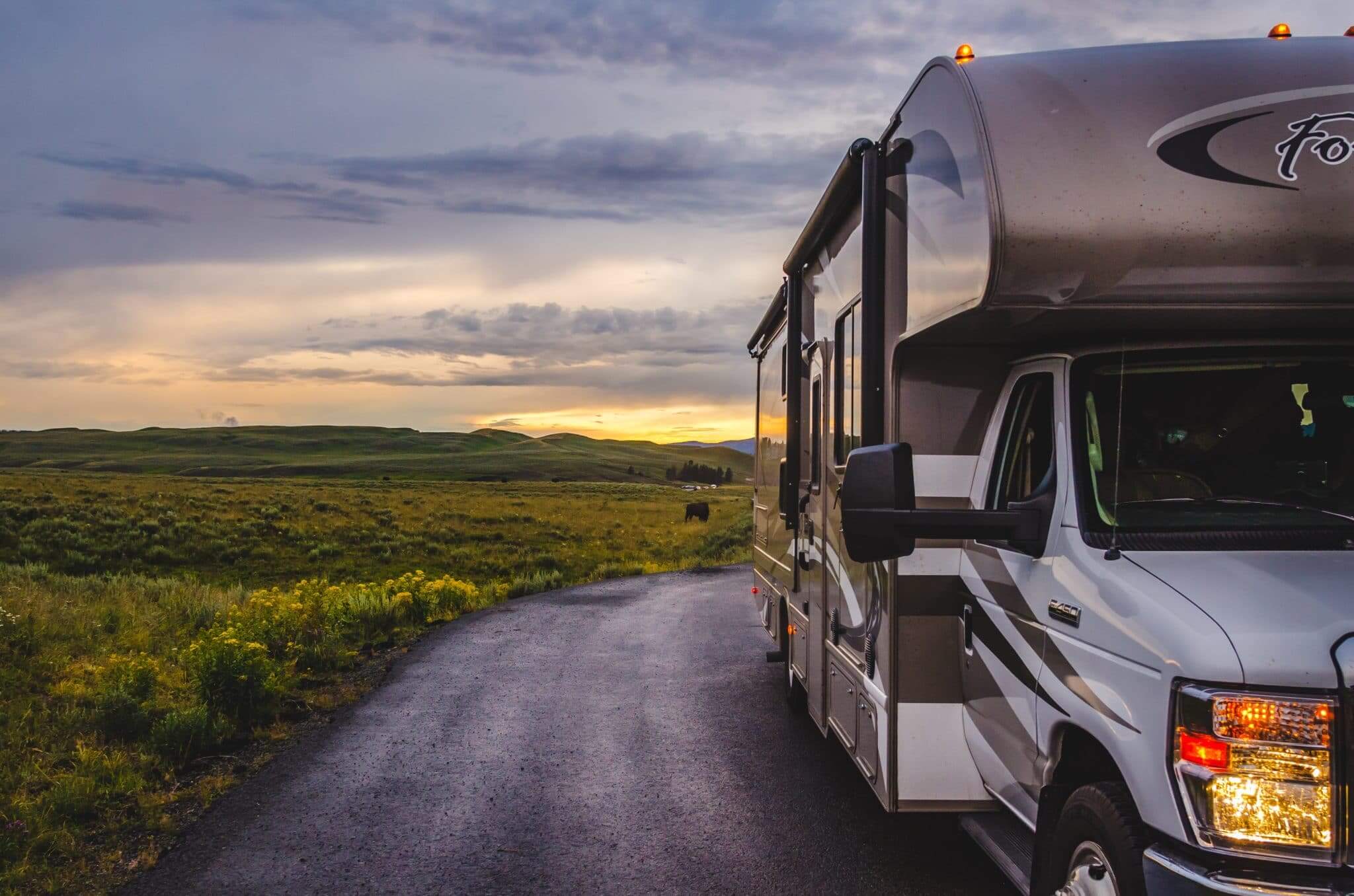

Tks for the tips. we are about to get out feet wet. Hence a 27 ‘ something we can tow with our Tundra
Looking a new and used. Always good to hear additional input.
Jim & Connie
Oh we have been camping and off reading for a few years.
Hi
Thanks for the great tips!! What are your thoughts on there low inventory during this pandemic? RV dealers are telling us that travel trailers are seeking fast and manufacturers cannot get parts so inventory is low. Leaves little room for bargaining.
Will I agree with some of what you have said in the article I have to strongly disagree with doing your own financing. It is smart to have a pre approval form your bank or credit union to compare, but if you give the dealership an opportunity to match or beat your rate they are much more likely to get you a better deal. If you have a good dealer with honest finance people you can often get a better rate and save money while the managers are more inclined to give you a better deal since they would make a couple bucks from the bank on financing. Doing your own financing actually decreases your chances of getting a good deal because the dealership wont make any money from the bank. It is a common misconception. I work in the industry doing finance and can tell you a customer gets a much better deal when they allow us to do financing. It comes down to saving money and you only cut the dealership out when you finance separately and the bank makes more off you rather than throwing the dealership a couple hundred dollars for the exact same rate.
What is the average payment (from a lender/bank to a dealer) when or if a buyer allows the dealer to handle the financing?